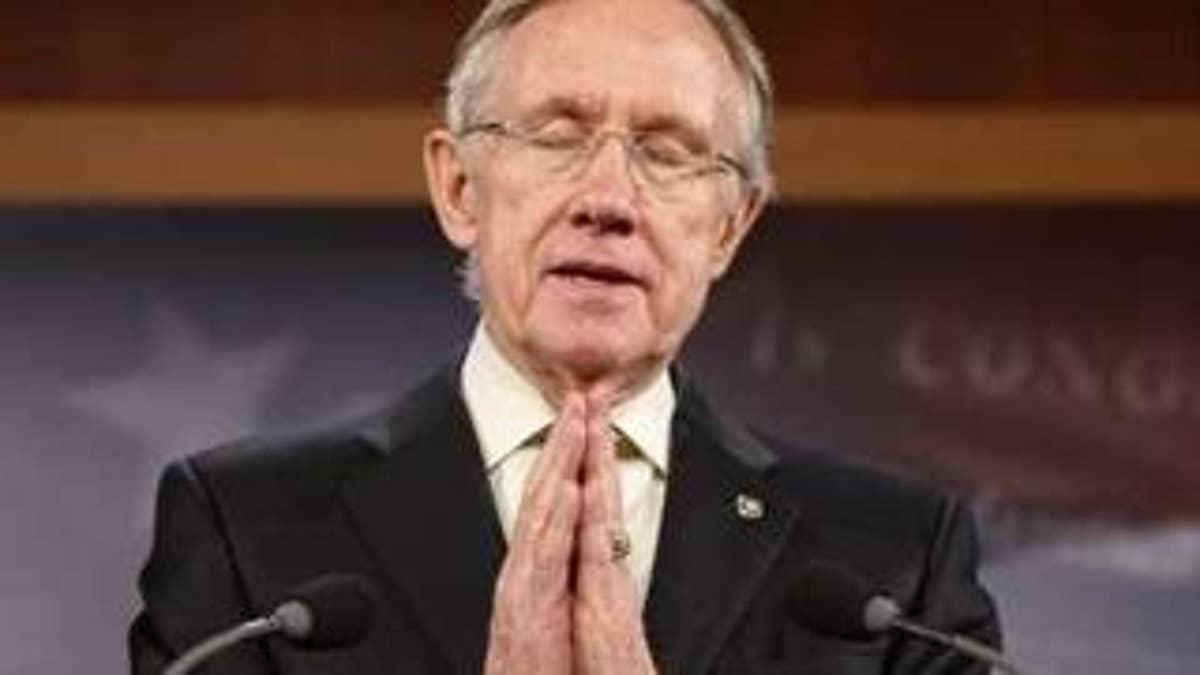
The problems Senate Majority Leader Harry Reid is having securing the 60 votes he'll need to block a filibuster of his health care reform bill raises the possibility that he'll scrap his proposal and revert to a more moderate version that can attract bipartisan support.
The Nevada Democratic rolled out a bold bill Monday that includes a controversial government insurance plan, leaving several moderate Democrats on the fence and expressing deep skepticism. Democratic aides told Fox News that Reid, who still does not have the 60 votes needed to kill a Republican filibuster, could end up falling back on an alternative plan pushed by Republican Sen. Olympia Snowe of Maine.
Snowe wanted a bill that would "trigger" a government health insurance plan in the future only if insurance companies do not meet certain benchmarks. Reid ignored that suggestion, and when he rolled out a health care bill that includes a government-backed insurance plan that individual states can opt out of, Snowe withheld her support.
But Reid might still revert to Snowe's plan, aides said -- explaining that the mere fact that he tried to pass a more robust public option would give him political cover among liberals in his state, where he's facing a tough re-election fight next year.
Snowe, in an interview with Fox News, continued to tout her "trigger" idea as the best way forward and suggested Reid privately endorses her plan.
"The leader did say my trigger was a pretty doggone good idea. Those were his words," she said. "The more support we can get for this type of legislation, I think the broader support we will get among the American people."
In a blow to Reid, Connecticut Sen. Joe Lieberman, an independent who caucuses with the Democrats, said Tuesday that he would support a Republican filibuster unless the bill is changed. Other key Democratic moderates, including Sens. Evan Bayh of Indiana, Ben Nelson of Nebraska and Blanche Lincoln of Arkansas, also said they were uncertain how they'd vote.
"The question is, is this enough flexibility for states to account for their own circumstances?" Bayh said. "And the answer to that is perhaps. But I'd like to wait to see what's in the language."
Lieberman flatly opposed any version of the government option.
"I think such a government-run health insurance company will be bad for our country and really will hurt taxpayers," he told Fox News.
With all 40 Republicans in the Senate opposing his bill, Reid would need unanimous support from the 60 Democrats to cut off debate and bring the measure to a vote. Though he was known to be short of the threshold before Monday's announcement, some Democrats hoped that by calling it a done deal, Reid could convince those lawmakers with reservations about the bill to vote at least to cut off debate -- even if they planned to vote against the bill in the end. Then Reid would need only 51 supporters to pass the bill.
For now, Reid and his allies are expressing confidence.
Sen. Max Baucus, D-Mont., chairman of the Senate Finance Committee, said Tuesday that a "sense of inevitability" grows every day surrounding the health care bill and that Democratic leaders will "fight" for the 60 votes.
Reid said he expects Lieberman to work with Democrats during the amendment process. And he suggested Snowe and other Republicans were simply not cooperative on the health care bill, comparing the negotiations to dancing without a partner.
"You can't dance if your partner's not willing to get off the chair. Like when I was in high school -- I wanted to dance but she wouldn't get up."
Fox News' Trish Turner contributed to this report.












































